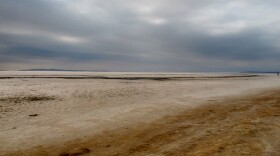-
The global growth of electric cars has continued to rise over the past year, increasing by 20% over 2024. Worldwide, 20.7 million EVs were sold, constituting nearly 23% of all light vehicle sales.
-
Plastic pollution remains one of the world’s most challenging environmental problems. Plastic pollution has been found everywhere on Earth, from the highest mountain peaks to the deepest parts of the ocean. And scientists are finding that plastic is also moving through the air we breathe.
-
We are all aware of the dangers of second-hand smoke. It is why smoking is not allowed in almost all public spaces. But a new study has revealed a persistent and evolving threat to indoor air quality known as third-hand smoke.
-
The world’s oceans just keep getting hotter. International analysis published in the journal Advances in Atmospheric Sciences finds that the oceans stored more heat in 2025 than in any year since modern measurements began.
-
The use of energy by artificial intelligence technology is rapidly increasing. Massive data centers performing the intense computation needed for training large models are consuming huge amounts of energy. Last year, AI consumed over 4% of U.S. electricity, putting a real strain on electric grids. Projections are that AI energy demand will more than double by 2040.
-
In healthy ecosystems, mosquitoes feed on a wide range of animals, including birds, amphibians, and mammals. But when those ecosystems lose species, mosquitoes are left with fewer choices. New research suggests that in some places where biodiversity is shrinking, humans are becoming the preferred target.
-
The ongoing battle between the Trump administration and the American offshore wind industry saw multiple court rulings in January. In December, the Interior Department ordered all work to stop on five offshore wind projects under construction, citing unspecified national security concerns. As a result, $25 billion in investments are in jeopardy. In response, the developers of the projects filed lawsuits in various courts arguing that the government failed to justify its actions and delaying the projects would cause irreparable harm to the companies involved.
-
Marmara Lake once spread across 17 square miles in the Turkish province of Manisa. Tourists came from far and wide to boat on its waters, which were the home of nearly 20,000 birds. In 2011, the lake began to dry up. By 2021, the lake had lost 98% of its water, destroying the ecosystem that depended on it.
-
The Amazon rainforest is the world’s large tropical rainforest, covering roughly 2.7 million square miles. It comprises more than half of the world’s remaining rainforests. It is crisscrossed by thousands of rivers, including the huge Amazon River, and is famed for its biodiversity. It is comparable in size to the United States and extends into nine South American countries. Most of it is in Brazil. Colombia contains only a small fraction of the Amazon rainforest – roughly 6% of it – but the rainforest there makes up 40% of the country.
-
Historically, growing industry and the economy meant burning more fossil fuels. As the world faces the prospect of needing to reduce carbon emissions, the worry is that it can’t cut emissions without cutting growth. But a new analysis by a London-based think tank has found that the opposite is happening.

Play Live Radio
Next Up:
0:00
0:00
Available On Air Stations










